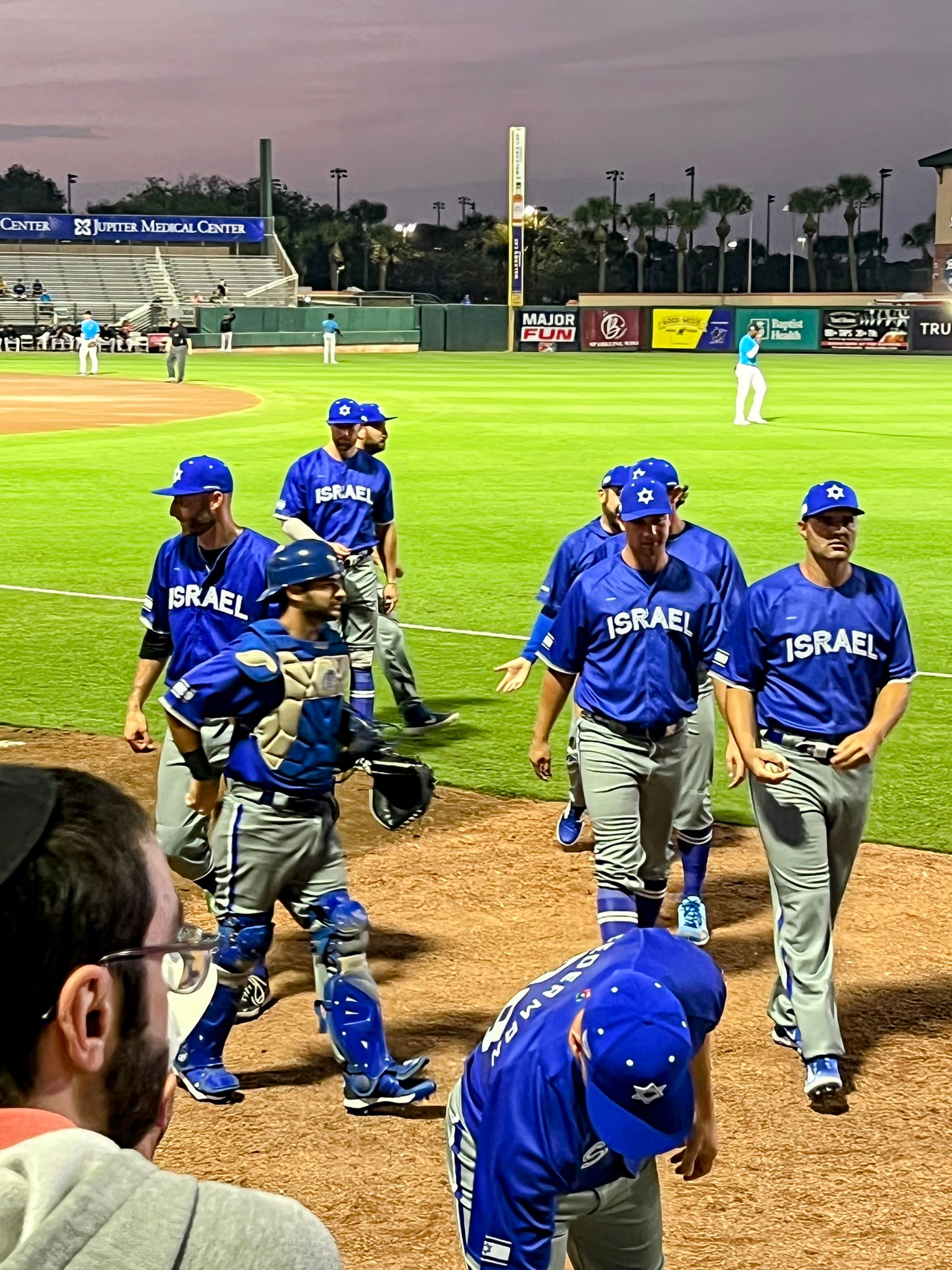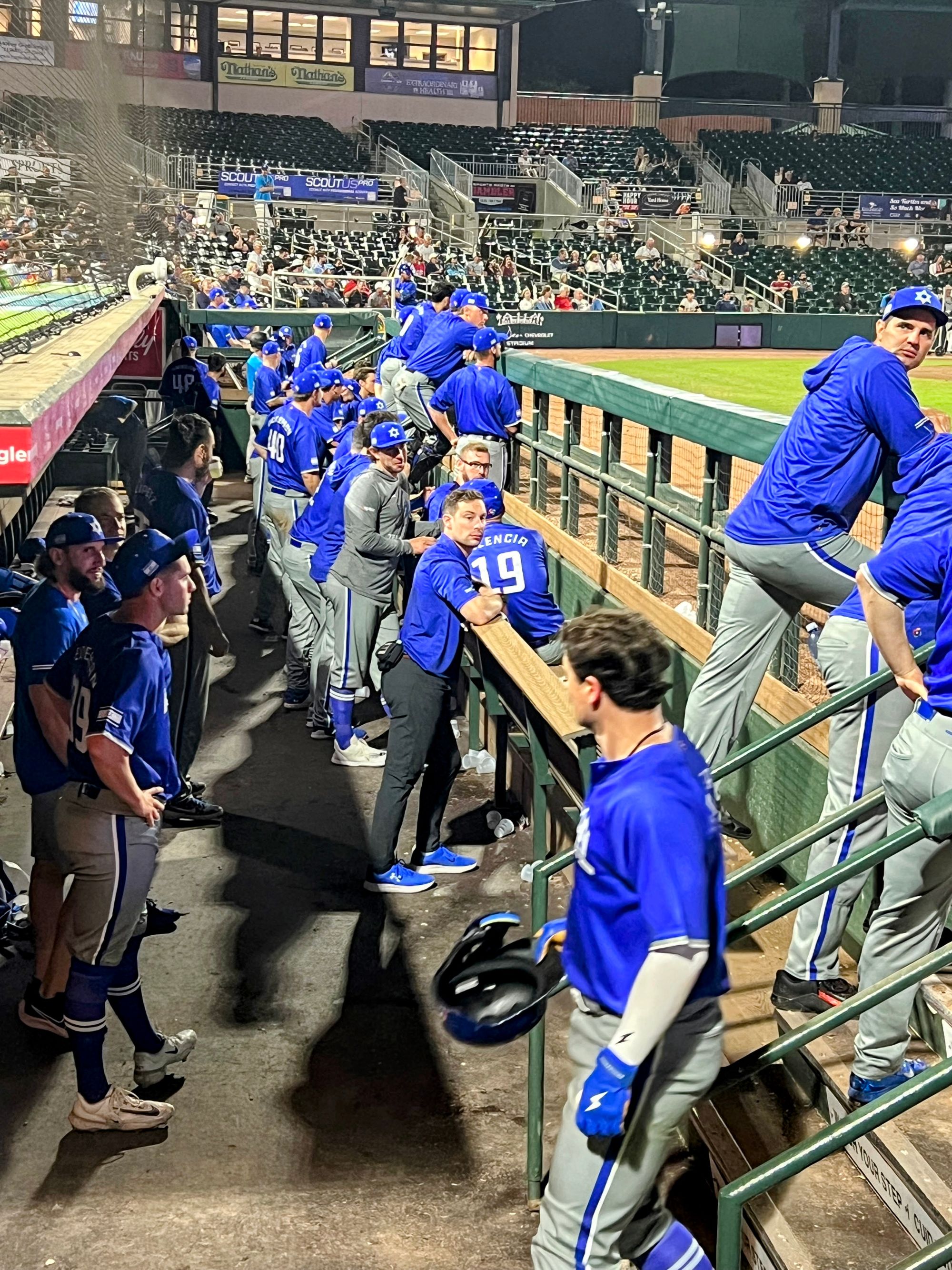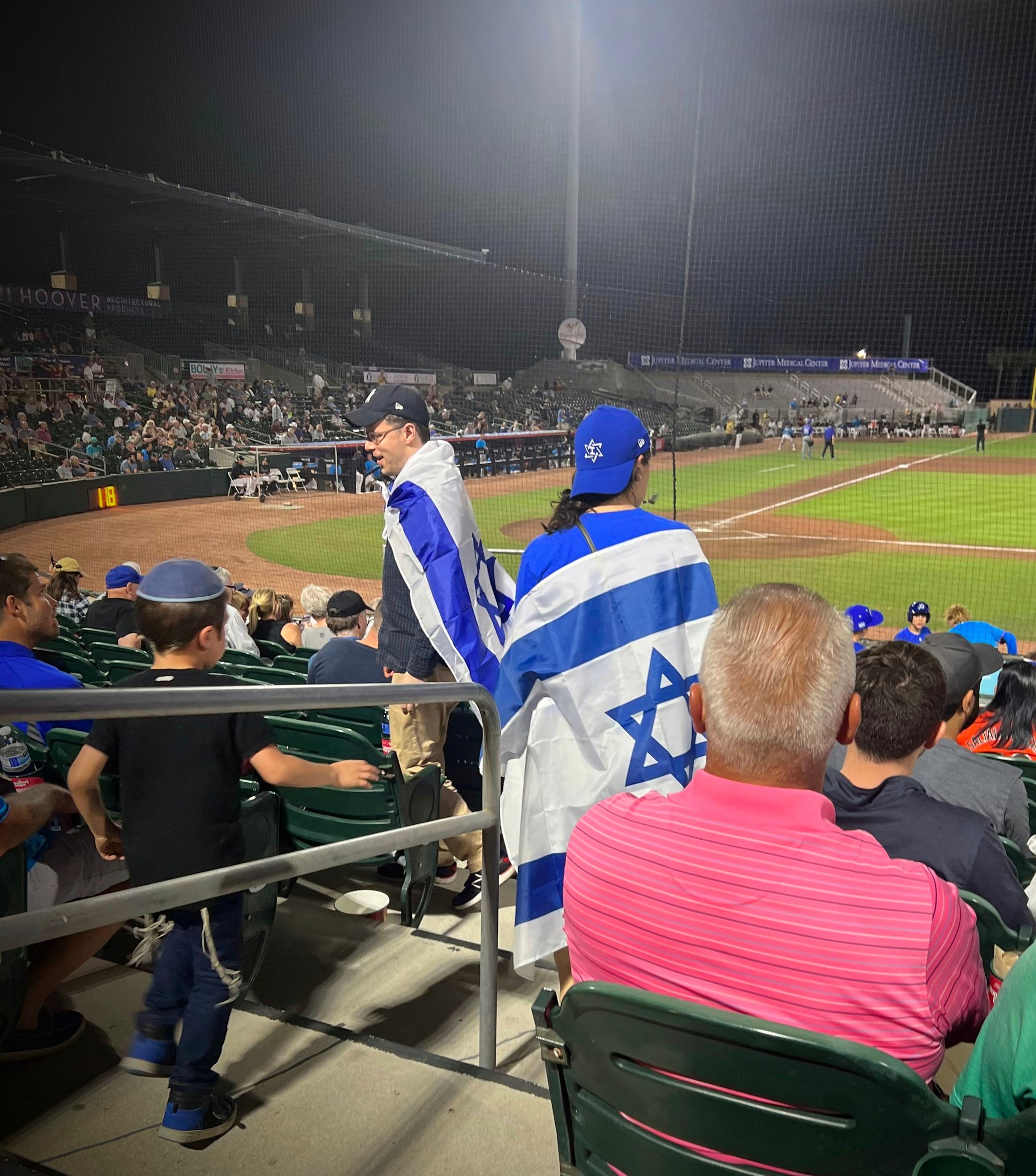Ah, Florida in the winter. Sunshine … beaches … palm trees … Israel’s national baseball team.
I can explain.
While in Florida, I recently ventured over to Roger Dean Stadium — the spring training home of the St. Louis Cardinals and the Miami Marlins — in the city of Jupiter. My mission was to see if the Tigers were coming to town and, if so, score a few tickets. That was easily accomplished, just as I had expected.
What I had not expected to see was “Israel” on the Marlins’ schedule, squeezed in between games against the Washington Nationals and the Tampa Bay Rays. I wasn’t exactly sure what that meant, but the lady in the box office explained that it was the Israeli national team, prepping for the upcoming 2023 World Baseball Classic.
That’s all I needed to hear. I scooped up two tickets to the game faster than you can say L’ Chaim.
The World Baseball Classic is a very big deal. It takes place every 6 years and is considered by many players to be the “real” world series. This year it kicks off in the US, Taiwan and Japan, and all the major baseball countries are participating — US, Japan, Cuba, Nicaragua, Dominican Republic, Venezuela, and many others.
Many of the biggest names in the game jump at the chance to play for their homeland.
This year the rosters will include 67 All Stars, 8 MVPs, last year’s Cy Young winner, and will feature serious big boys and future Hall of Famers like Miguel Cabrera, Mike Trout, Shohei Ohtani, Mookie Betts, Clayton Kershaw and Jose Altuve.
Team Israel, managed by former Tiger Ian Kinsler, will have their hands full. But the team is stacked with talent and is no stranger to upsets. At the last world tournament, the team came in 6th out of 20. This time, about half of Team Israel’s players have major league experience — the highest number ever for an Israeli roster.
The World Baseball Classic rules allow anyone to play for a country if that person “would be granted citizenship in due course” were he to apply for citizenship. Because Israel’s Law of Return basically allows any Jew to be eligible for citizenship, any Jew is eligible to play for Team Israel. Not surprisingly, because of that, the team is teeming with Jewish Americans — 26 of the 30 players.
Team Israel players run the gamut from unknowns to aspiring prospects to current big leaguers. A small sampling:
- Joc Pederson, 30, is already a legitimate major league star and Team Israel’s biggest name. He plays for the San Francisco Giants and last year batted .274, with 23 home runs and 70 RBI. Joc will make $20 million in 2023 as the Dodger’s starting first baseman. He’s a two-time All Star and has two World Series rings.
- Rob Kaminsky, 28, has played for four major league teams. He’s currently unsigned and wondering if he’ll ever get another shot at the big leagues. Rob has had his share of ups and downs in baseball. He’s toiled in the minor leagues more than he cares to remember. “Some days flat out suck. Some days you feel like shit. Some days, after a tough loss and a ten hour bus ride in a thunderstorm with a headache to end all headaches, there isn't anything fun about it.” Rob’s hoping a solid showing at the upcoming World Baseball Classic can be his ticket back to the big show. “It’s time to shine,” he recently posted.
- Jacob Steinmetz is a 19 year old, 6’5” hurler from Queens with a wicked curveball and 90-plus mph fastball. Jacob was drafted by the Arizona Diamondbacks when he was just 17 years old — and immediately made history as the first Orthodox Jew ever selected by a major league team (“Why can’t I be the first?”). He attended Yeshiva University in New York City, where his father is the coach of the highly-acclaimed basketball team. Jacob observes Shabbat and his all-time favorite player, not surprisingly, is Sandy Koufax. When asked if he’d pitch in the World Series if a game were on Shabbat, he diplomatically says “We’ll see if it happens.”
From the moment I walked into the stadium for the game — a night game — I could immediately sense that this was a baseball night different from all other baseball nights. First, there was a large and visible police presence, in and out of the stadium. Still, the pre-game vibe was fun and loose, just like any other game. But the feelings were unmistakably different. Just seeing the Israel team — sporting blue hats with a Star of David and the word “Israel” emblazoned on their jerseys — instantly stirred up all kinds of emotions: excitement, nervousness and lots and lots of Jewish pride.
Many fans were sporting Team Israel gear, particularly the blue hat and jersey or tee shirts with the word “Israel” or some pro-Israel messages. Others wore the Israeli flag draped over them as if it were a cape. The whole scene was joyous and festive, the picture of Jewish solidarity. The fan base spanned from very young to very old, all visibly bursting with pride, so there was a genuine mishpocha feel to it all — especially when the speakers blared Hava Nigila.
Roger Dean Stadium, like all spring training stadiums, is small and intimate, seating just under 7,000. The fans can get up close with the players, who are generally approachable and friendly. The crowd was mostly Team Israel fans, who were clearly fired up. During pre-game, many of them flocked to the Israel side for a close look and quick chance to greet the players. Players seemed to appreciate the love — and the fans were clearly having a full-on kvell-fest.
The moment arrived for the national anthems. Hearing Hatikvah always strikes a deep, visceral nerve in me, as with many Jews. The song was sung beautifully by about 20 students from a local religious school. Listening to them and watching the sight of 30 proud and determined Jewish players — solemnly holding their blue Star of David hats and about to square off with some of the best players in the world — was a powerful moment.
I had the surreal sense that I was witnessing a modern day David v. Goliath … and we all know how that ended. As the song about “hope” filled the stadium, it hit me that these players — just like the tiny nation they represent — are not the slightest bit intimidated by the challenge ahead.
For the Miami Marlins, the game was all business. To fans, spring training may appear to be a fun and easygoing time, but nothing could be farther from the truth. In reality, spring training is a Darwinian competition, for both veterans looking to hold a job or minor leaguers trying to land one. The numbers tell the story; only 28 players out of the full squad of 116 will make the MLB team. Every player knows full well that fame, fortune, perks and pampering awaits the guys that make it to the big leagues — while low pay, long bus rides and anonymity await the minor leaguers. Each chance to distinguish yourself at spring training, whether it’s against the New York Yankees or Team Israel, could be a potentially career-changing moment.
As superstar Aaron Judge once famously said, “Fighting for a job — that's been my mindset every spring training.”
The game itself was beautifully ordinary — and to me that was the best part. No hint of politics, no protests, no hateful displays against Israel or Jews. Just a normal, uneventful baseball game, exactly the way it’s supposed to be, but too often isn’t when Israel is involved.
Team Israel jumped to an early 5 - 2 lead, and with each run the fans erupted with a standing ovation. The Marlins soon came back with 9 unanswered runs to win the game, 11 - 5. The fans were always supportive and in good spirits. At one point as the score was getting out of hand, Israel executed a double play to end the inning, which earned a hearty “Mazel Tov!” from the crowd.
But the final score really didn’t matter to me. The triumph of the evening wasn’t about the box score. It was witnessing the cool confidence of Team Israel — representing a young and embattled Jewish homeland — facing off against major league players, undeterred by the odds, and defiantly standing in the batter’s box and swinging for the fences.
Mazel tov, Team Israel. Keep swinging.



Comments
Sign in or become a Nu?Detroit member to join the conversation.
Just enter your email below to get a log in link.